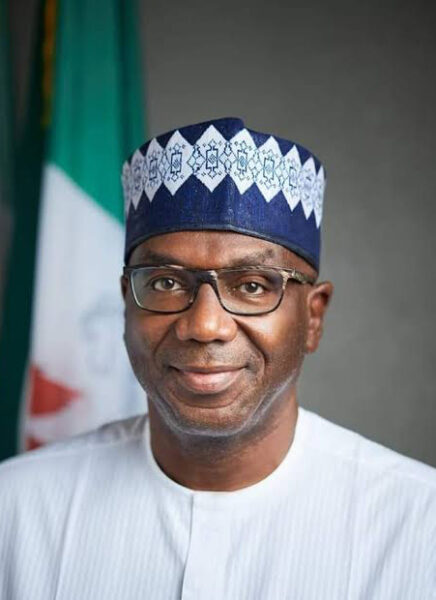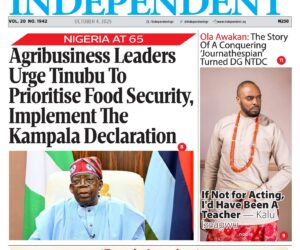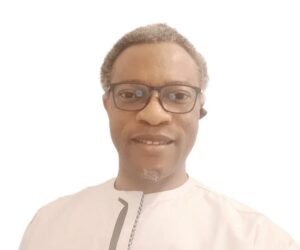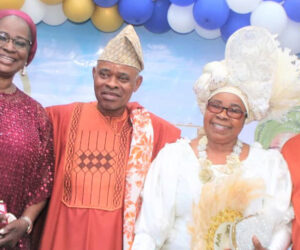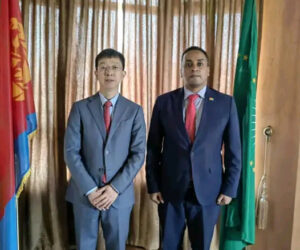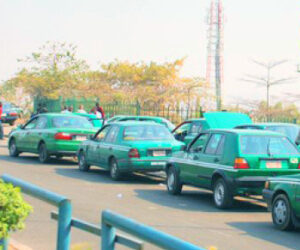2
As the clock ticks toward the 2027 polls, Kwara finds itself at a crossroads between consolidation and renewal. The conversation should not be about religion, but representation — about ensuring that the story of Kwara’s progress continues under a leadership that mirrors its diversity. Supporting a Christian governor is one sure path toward that balance.
For a state whose strength lies in its diversity, 2027 presents a chance to prove political maturity. Kwara can consolidate its progress not only through economic prudence and infrastructure but through symbolic and structural inclusivity. Electing a Christian governor would signal that Kwara’s leadership mirrors its plural identity. This is not about religious tokenism; it is about justice and balance — the assurance that governance in Kwara belongs to all.
Governor Abdulrahman Abdulrazaq has undeniably redefined Kwara’s governance ethos. From the dusty roads of Baruten to the expanding suburbs of Ilorin, his imprint is visible. Roads have been revived, schools rebuilt, hospitals upgraded, and thousands of young people empowered through digital and vocational initiatives. Fiscal discipline has restored confidence, while Ilorin itself is gradually transforming into a livable, modern city — the centerpiece of his vision for a more productive and inclusive state.
Yet, competence and development, as history shows, do not automatically translate into lasting prosperity. The critical question is not only who can perform but who can preserve progress without plunging the state back into stagnation. And that brings us to a hard truth drawn from Kwara’s political past.
Dr. Bukola Saraki’s administration (2003–2011) stands as one of Kwara’s most productive eras. His reforms in healthcare, agriculture, revenue generation, and infrastructure lifted the state into national reckoning. His urban renewal projects modernised Ilorin and spread growth across the three senatorial districts. For a time, Kwara was a model of administrative efficiency and development planning.
But the Saraki years also exposed a flaw that haunts many successful leaders — the failure to choose the right successor. His anointed successor, Abdulfatah Ahmed, struggled to sustain the tempo. Under Ahmed, debts ballooned, salaries went unpaid, and public morale sank. Projects stalled, and fiscal recklessness returned. By the time Abdulrazaq assumed office in 2019, the state had lost much of the momentum painstakingly built in the previous decade.
The lesson is unmistakable: good governors often make poor kingmakers. Progress is never guaranteed by continuity alone. The fate of a state cannot depend on one man’s endorsement but on the collective wisdom of its people. Leadership selection must not be reduced to loyalty tests; it must reflect legitimacy, equity, and foresight.
There is, therefore, a growing consensus among Kwara’s opinion leaders that the choice of Abdulrazaq’s successor must rest squarely with the people — not as a reward for loyalty but as a reflection of shared vision. Across Nigeria, incumbents have often chosen successors in their own image — only to watch their legacies crumble in the hands of mediocrity. When successions are driven by personal preference rather than the people’s will, the outcome is predictable: decline.
For Kwara, this is not merely about political control. It is about ensuring that the next governor sustains today’s gains, expands inclusivity, and preserves the delicate peace that distinguishes the state from its more volatile neighbours.
Kwara’s calm in the midst of the Middle Belt’s religious volatility is no accident. While states like Plateau and Benue have battled sectarian tension, Kwara has remained a bastion of moderation — a state where coexistence thrives. Its secret is a deeply ingrained sense of balance. From Ilorin to Offa, Patigi to Omu-Aran, Kwara is home to Yoruba, Fulani, Nupe, Baruba, and other groups — Muslims and Christians alike. This mosaic is not just cultural; it is moral capital. But that balance must be consciously maintained.
A deliberate move to elect a Christian governor in 2027 would be both a political and moral act — reaffirming that leadership in Kwara is not reserved for any one faith or section. It would strengthen the bond of trust that has kept the state stable and united. More importantly, it would show that fairness is not a concession but a foundation for progress.
This call for a Christian governor is not limited to any zone. A competent and visionary leader could emerge from Kwara North, South, or Central. The emphasis is not on geography but on equity; not on token representation but on broad-based trust. What Kwara needs is a leader who embodies both the moral courage of inclusion and the managerial capacity for governance.
History, again, supports this path. The state once produced leaders like Cornelius Adebayo, whose tenure as governor in the 1980s was defined by integrity, prudence, and a passion for service. His era, far from disrupting harmony, reinforced it — proof that inclusivity strengthens, not weakens, the social fabric.
In an age when Nigeria struggles to prove that diversity and democracy can coexist, Kwara can lead by example. A Christian governor would send a powerful signal: that competence and inclusion are not mutually exclusive. It would also resonate with young voters — a generation less constrained by religious identity and more inspired by justice, merit, and progress.
Inclusivity, in this sense, is smart politics. It deepens legitimacy, reinforces peace, and expands the circle of belonging. When people see themselves reflected in leadership, they invest emotionally and economically in the system. Kwara’s future stability depends on this inclusive psychology.
Governor Abdulrazaq’s achievements deserve continuity, but not complacency. The next phase of Kwara’s growth requires a leader who will consolidate fiscal discipline, complete ongoing infrastructure projects, deepen education and youth programmes, and preserve the peace that defines the state. Competence remains vital — but competence infused with inclusivity guarantees sustainability.
A Christian governor, by virtue of that balance, would reassure all segments of society that Kwara’s leadership truly belongs to everyone. It would mark a new chapter of trust, showing that the state’s political evolution is in step with its demographic reality.
Every generation of Kwarans faces a defining political test. In the early years, it was education and autonomy; later, liberation from political oligarchy. The 2027 election will test the state’s maturity in inclusion. Can Kwara, once again, rise as Nigeria’s moral centre of moderation? Can it show that performance and fairness can walk hand in hand?
The call for a Christian governor is not a sectarian appeal. It is a call to conscience — a statement that Kwara’s democracy has matured beyond old prejudices. Sustaining progress means broadening inclusion. Fairness, in politics as in society, is not charity; it is strength.
As 2027 approaches, the people of Kwara must look inward and upward — to protect the gains of the past eight years while expanding the circle of belonging. Supporting a Christian governor, from any senatorial district, is the surest way to reaffirm Kwara’s identity as Nigeria’s model of unity and moderation.
In doing so, Kwarans would not only sustain Abdulrazaq’s legacy but also light a national beacon — proving that prosperity endures where competence and inclusion walk together.
Adamz Yusuf is a teacher and a contributor to media discourses based in Kaiama, Kwara State.

